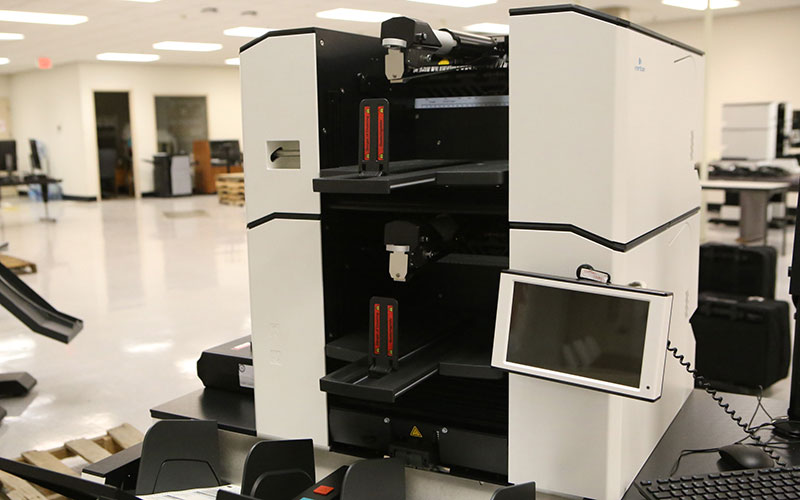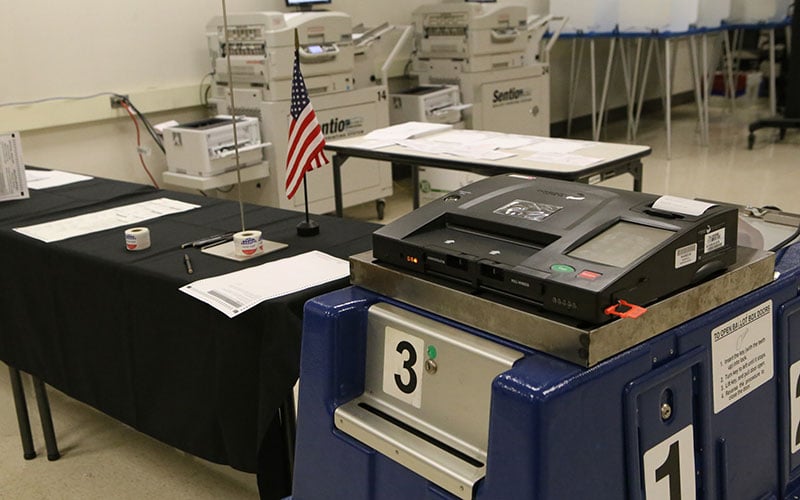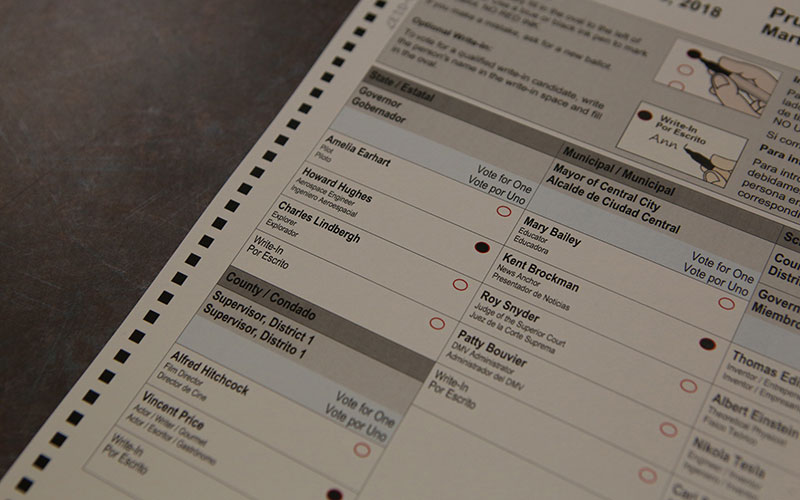PHOENIX – Maricopa County will implement new voting equipment and procedures in all polling locations in time for the Democratic presidential preference vote March 17, the Aug. 4 primary election and the Nov. 3 general election.
The new equipment – ballot tabulators and accessibility improvements – cost about $6.1 million in total and will replace equipment that has been in use since 1996, according to Erika Flores, deputy director of communications for elections in Maricopa County. The county also is dropping arrows in favor of ovals for voters to fill in next to candidate names and ballot questions.
Maricopa Elections Communications Director Megan Gilbertson said that the county leased the new equipment last summer, and that Senate Bill 1135 modernized Arizona’s election law and allows elections to use the new electronic adjudication feature.
Senate Bill 1135 took effect Feb. 3 with the signature of Gov. Doug Ducey. It was proposed as an emergency measure, which shortened the process to three weeks from its introduction in the Senate to its signing. Although the law applies to all 15 Arizona counties, officials said, only Maricopa County has the money and technology for the equipment upgrades that can utilize the feature.
State Sen. Martin Quezada, D-Glendale, who sat in the committee SB 1135 originally was assigned to, said the bill was drafted quickly to have everything ready before next month’s Democratic presidential preference vote. Under the Legislature’s normal timeline, the measure wouldn’t have gone in effect until August, he said.
Upgraded equipment
One of the main upgrades is to the ballot tabulators, which Flores said will count 6,000 to 8,000 ballots an hour, compared with the old tabulators, which processed 3,000 an hour.
Under the changes, central tabulators will be set up at the Maricopa County Tabulation and Election Center, and each polling location will have one precinct tabulator. Maricopa County has 553 precinct tabulators and expects to have one at each of the 229 polling locations for the Presidential Preference Election. The number will vary depending on how many polling locations will be needed for the August primary and November general election, Gilbertson said.
If a precinct tabulator can’t read a ballot, it will be sent to the central tabulators for electronic adjudication. Officials said the new process will take one minute instead of 12.
Ballot duplication process
Another new measure from SB 1135 is the introduction of a ballot duplication board, which Flores said will consist of one Republican and one Democrat, both appointed by the county Board of Supervisors or an officer in charge of elections. If the voter has clearly indicated his or her intent to vote on a particular race or ballot measure, damaged or defective ballots that can’t be read by a tabulation machine must be duplicated by the board and counted in place of the damaged ballot.
“If you circled something,” Flores said, “or you put your signature next to something you wanted to vote for, it’s going to appear like you didn’t vote for that area for that candidate or that contest. So the bipartisan board will then review it and see, ‘OK, you circled it, so you did mean to vote for that.'”
Also, ballots have had a slight makeover – voters now will fill in ovals instead of arrows. Although the change seems minor, Flores said it’ll be easier for voters because ovals commonly are used in surveys and standardized academic tests.
“If you’re able to fill in the ovals, then we won’t have as many issues with any of the ballots not being able to be read,” Flores said. “Those will go quickly and be counted faster with the tabulation equipment that we have.”



